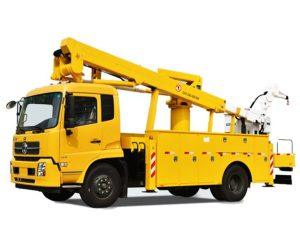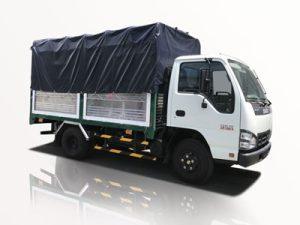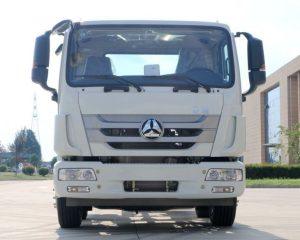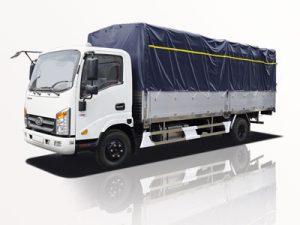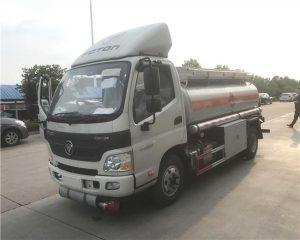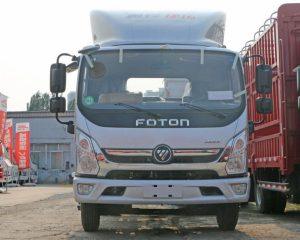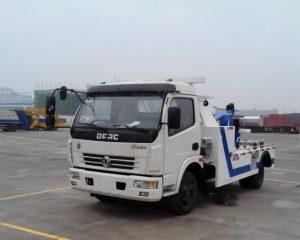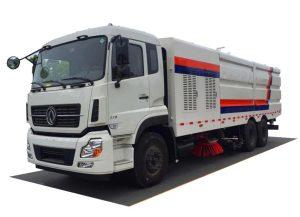Monday to Saturday - 8:00 -17:30
Comprehensive Guide to Freezer Truck Boxes: Everything You Need to Know
Introduction
In today’s fast-paced world, the transportation of perishable goods has become critical for businesses in the food industry, pharmaceuticals, and other sectors. One of the essential tools for ensuring the safe and efficient delivery of these temperature-sensitive products is the freezer truck box. This article will delve into the intricate details of freezer truck boxes, discussing their types, features, benefits, and practical applications. Whether you are a business owner looking to invest in a freezer truck or simply curious about how they operate, this comprehensive guide will provide the information you need.
What is a Freezer Truck Box?
A freezer truck box, often referred to as a reefer box, is an insulated cargo compartment designed to transport frozen or chilled goods. These trucks are equipped with refrigeration units that maintain sub-zero temperatures, making them essential for industries that rely on the safe transportation of food products, vaccines, and other perishable items.
Types of Freezer Truck Boxes
There are several types of freezer truck boxes to cater to different transportation needs:
- Standard Freezer Truck Boxes: Equipped with basic refrigeration systems, ideal for transporting standard frozen goods.
- Multi-Temperature Freezer Trucks: Featuring multiple compartments that can maintain different temperatures, suitable for transporting various types of goods in one trip.
- Insulated Boxes: These boxes do not come with a refrigeration unit but are designed to keep items cold for a limited time using ice packs or dry ice.
- Custom Freezer Trucks: Tailored units designed specifically for unique business needs, often incorporating specialized features.
Key Features of Freezer Truck Boxes
| Feature | Description |
|---|---|
| Insulation | High-quality insulation to minimize heat transfer and maintain temperature. |
| Refrigeration Unit | Systems for active cooling to maintain desired temperatures consistently. |
| Temperature Control | Advanced temperature monitoring systems to ensure goods remain within safe limits. |
| Loading and Unloading Options | Wide doors or lift gates for easy access during loading and unloading. |
| Durability | Robust construction to withstand the rigors of road transport and heavy loads. |
The Importance of Using Freezer Truck Boxes
Freezer truck boxes play a crucial role in various industries due to the following reasons:
- Food Safety: They help maintain the necessary temperature to prevent spoilage and ensure food safety, complying with health regulations.
- Quality Assurance: By using freezer trucks, businesses can ensure that products maintain their quality from the point of origin to the final destination.
- Operational Efficiency: Reduces waste and loss of inventory, leading to better profitability and customer satisfaction.
- Diverse Applications: Beyond food, they are also used to transport pharmaceuticals, chemicals, and other temperature-sensitive products.
Benefits of Using Freezer Truck Boxes
The benefits of utilizing freezer truck boxes extend beyond mere transportation:
- Extended Shelf Life: Allows perishable goods to remain viable for more extended periods.
- Cost-Effectiveness: Minimizes loss from spoilage due to temperature fluctuations.
- Regulatory Compliance: Helps businesses adhere to laws governing food transport and safety.
- Brand Reputation: Reliable delivery of high-quality products enhances brand image.
Choosing the Right Freezer Truck Box
Factors to Consider
When selecting a freezer truck box for your business, consider the following factors:
- Size: Assess the cargo space needed based on the type and volume of goods to be transported.
- Temperature Range: Understand the temperature requirements for your specific products.
- Refrigeration Technology: Choose between electric, engine-driven, or alternative energy sources for the refrigeration unit.
- Compliance Requirements: Ensure the truck meets regulatory standards for the transport of perishable goods.
- Budget Constraints: Determine your budget and explore options within that range.
Practical Examples of Freezer Truck Box Uses
Freezer truck boxes have diverse applications across different industries:
- Food Transportation: Restaurants often use them for receiving supplies of meat, dairy, and seafood to ensure freshness.
- Pharmaceuticals: Hospitals and pharmacies rely on freezer trucks to transport vaccines and medicines safely.
- Floral Delivery: Flower shops employ refrigerated trucks to deliver flowers while preserving their quality.
Operational Maintenance for Freezer Truck Boxes
Proper maintenance of freezer truck boxes is essential for their optimal performance.
Routine Checks
Conduct regular inspections and maintenance tasks, such as:
- Checking the insulation for wear and tear.
- Monitoring the refrigeration unit for proper operation.
- Inspecting seals and doors to prevent temperature leaks.
Cleaning and Sanitization
Regular cleaning helps ensure that no cross-contamination occurs:
- Use food-safe cleaning agents to sanitize the interior.
- Ensure that the refrigeration unit is defrosted as needed to maintain efficiency.
Cost Considerations and Budgeting for Freezer Truck Boxes
Investing in a freezer truck box requires careful financial planning:
Initial Investment
Understand the costs associated with purchasing or leasing a freezer truck box:
- Purchase Price: The upfront cost varies depending on the type and features.
- Leasing Options: Consider leasing as a way to manage short-term needs with less financial burden.
Operational Costs
Factor in ongoing costs associated with vehicle operation:
- Fuel costs, which may be higher for refrigerated trucks.
- Maintenance expenses, including repairs and servicing.
- Insurance costs to protect your investment.
Advanced Technology in Freezer Truck Boxes
Emerging technologies enhance the efficiency of freezer trucks:
Telematics and GPS Tracking
Utilizing telematics systems can improve operational efficiency:
- Monitor real-time temperatures and conditions inside the truck.
- Track delivery routes to optimize travel times and reduce fuel costs.
Smart Refrigeration Systems
Innovative refrigeration technologies improve temperature control:
- Energy-efficient systems can reduce operational costs.
- Smart sensors can alert drivers and fleet managers to potential issues before they result in spoilage.
Regulatory Compliance and Freezer Truck Boxes
Understanding and adhering to government regulations is crucial for businesses using freezer trucks:
Food Safety Regulations
Businesses must comply with guidelines established by regulatory agencies:
- The U.S. Food and Drug Administration (FDA) sets standards for food transportation.
- Consider local and state regulations that may impose additional requirements.
Documentation and Auditing
Maintain proper documentation related to temperature logs and delivery records:
- Accurate records can help prove compliance in case of inspections.
- Regular audits help identify areas for improvement in operational processes.
FAQ Section
What is the typical temperature range for freezer truck boxes?
Freezer truck boxes typically operate at temperatures ranging from -20°F to 0°F, depending on the type of goods being transported.
How can I maintain a freezer truck box?
Regular inspections, cleaning, and monitoring of the refrigeration unit are essential for maintaining a freezer truck box.
Are there eco-friendly options for freezer truck boxes?
Yes, some freezer truck models utilize energy-efficient refrigeration systems or alternative energy sources to reduce environmental impact.
What industries commonly use freezer truck boxes?
Industries such as food service, pharmaceuticals, and floral delivery commonly use freezer truck boxes for transporting perishable goods.
How can I ensure compliance with food safety regulations when using freezer trucks?
Maintain accurate temperature logs, adhere to guidelines set by regulatory agencies, and conduct regular audits of your operations.
Can I customize my freezer truck box for specific needs?
Yes, many manufacturers offer customizable options based on the unique requirements of your business.


